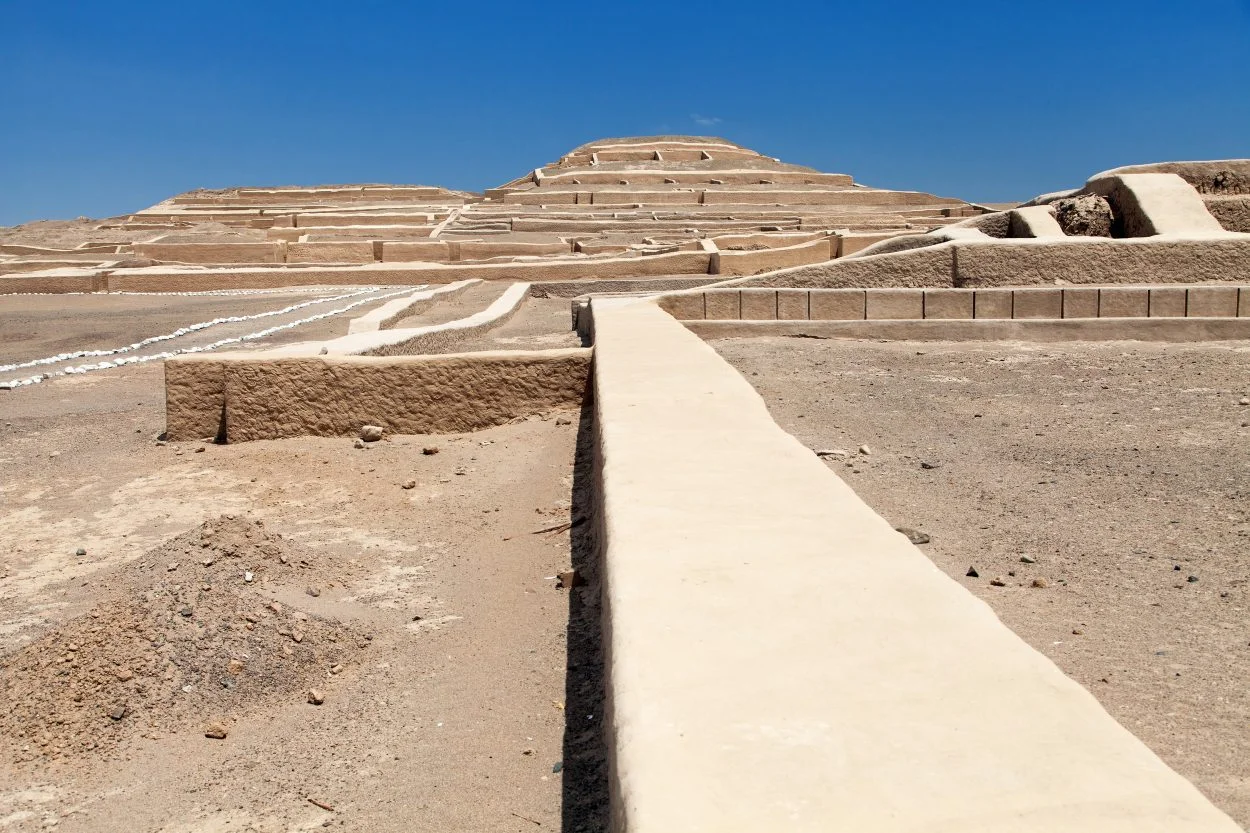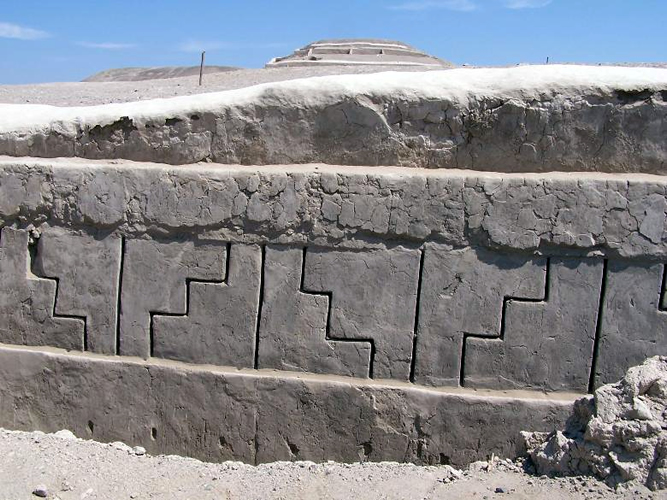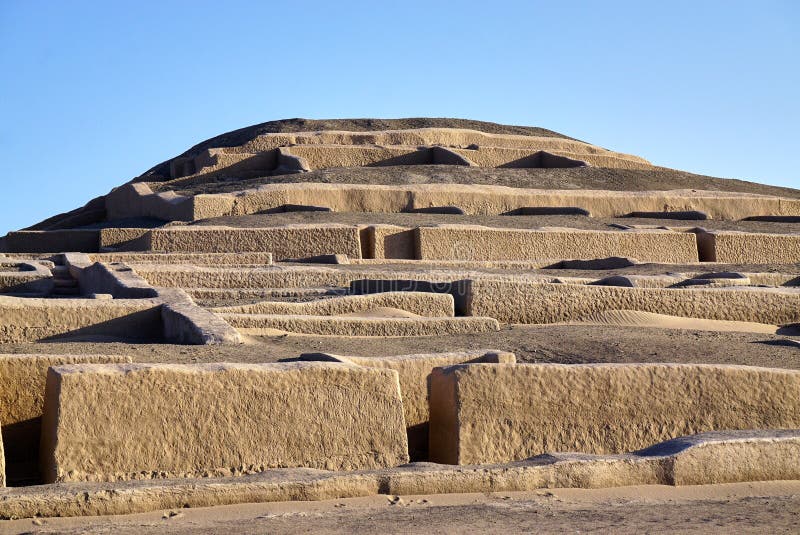Welcome to DU!
The truly grassroots left-of-center political community where regular people, not algorithms, drive the discussions and set the standards.
Join the community:
Create a free account
Support DU (and get rid of ads!):
Become a Star Member
Latest Breaking News
Editorials & Other Articles
General Discussion
The DU Lounge
All Forums
Issue Forums
Culture Forums
Alliance Forums
Region Forums
Support Forums
Help & Search
Anthropology
Related: About this forumCahuachi - The Ceremonial Centre of the Nazca

Cahuachi is a large ceremonial complex built by the Nazca, located in the basin of the Rio Grande in the Central Andes of Peru.
The Nazca emerged as a distinct archaeological culture around 100 BC from the preceding Paracas culture, having settled in the valley of the Rio Grande de Nazca drainage, and the Ica Valley. The culture is characterised by its pre-fire slip polychrome pottery, that demonstrates a shift from the Paracas post-fire resin method.
The Nazca are most widely known today for the Nazca lines, a series of giant linear features and geoglyphs, and the construction of large underground aqueducts called “puquios” to provide water in the arid environment.
Evidence of occupation at Cahuachi dates as far back as 400 BC, but during the Early Intermediate Period the site became an important Nazca centre in the Nazca 2 Phase (100 BC to AD 1).
By the Nazca 3 Phase (AD 1 to 450), Cahuachi’s status was elevated to serve as the main ceremonial complex of the region. During this period, a series of major construction projects was initiated that terraced parts of the existing topographical features to give the appearance of monumental architecture.

Over 40 terraced mounds have been identified, some topped with adobe structures such as temples, room constructions, cylindrical shafts, and walls. The largest mound is called the “Great Temple” that exceeds 150 x 100 metres at the base and reaches a height of 100 metres. At the top of the mound is a large square, behind which rises a pyramidal structure. The lower section of the mound has four platforms terraced on different levels, whilst on the lower platform is several quadrangular enclosures.
Unlike other contemporary Nazca sites, Cahuachi lacks the domestic material evidence and residential structures to suggest it was a population centre. Instead, the site appears to be occupied periodically for religious activities and as a site for sacred pilgrimages.
The function of Cahuachi changed during the apogee in the Nazca 4 Phase, where it was used largely for burials. The architecture during this time was mostly abandoned, but did have “postapogee” offerings through the Nasza 6 and 7 Phases, until Cahuachi was completely abandoned around AD 450-500.
https://www.heritagedaily.com/2021/09/cahuachi-the-ceremonial-centre-of-the-nazca/141356
(Short article, no more at link.)
~ ~ ~
Cahuachi
Nazca, Peru
Nazca pilgrimage site covering 370 acres is a popular stop for archeologists and looters.

A computer generation of what Cahuachi looked like NAZCAFLIGHTS.COM
COVERING 0.6 SQ. miles, Cahuachi was once one of the most important and largest ceremonial centers for for Nazca culture in Peru. Containing over 40 mounds providing a base to adobe structures, the area is thought to have been a pilgrimage site, its population ebbing and flowing in relation to ceremonial events.
Italian archaeologist Giuseppe Orefici has been heading excavation and research of the site for several decades, and American archeologist Helaine Silverman has also studied the site extensively throughout the years. Their findings have supported the theories that this area was not the bustling capital of the state of Nazca as previously thought, but a place for people to gather in prayer.
While it may have been a sacred place in ancient times, it now often falls prey to looters, who find the burial site rich with artifacts too tempting to ignore. Cahuachi overlooks some of the Nazca Lines, an intriguing archeological mystery that Orefici is sure Cahuachi holds the key to.
Still delivering mummies, artifacts, jewelry and priceless information about the civilization from 1500 years ago, these seemingly plain ruins are a fascinating spot to tour in Peru, and provide a window into a mystical past still being uncovered.
https://www.atlasobscura.com/places/pyramid-cahuachi
~ ~ ~




Sarel Theron
Cahuachi Concept Painting - Sarel Theron Concept Art
In addition to the horrendous erosion of this area, it has been devastated by massive looting on a vast scale, unfortunately....